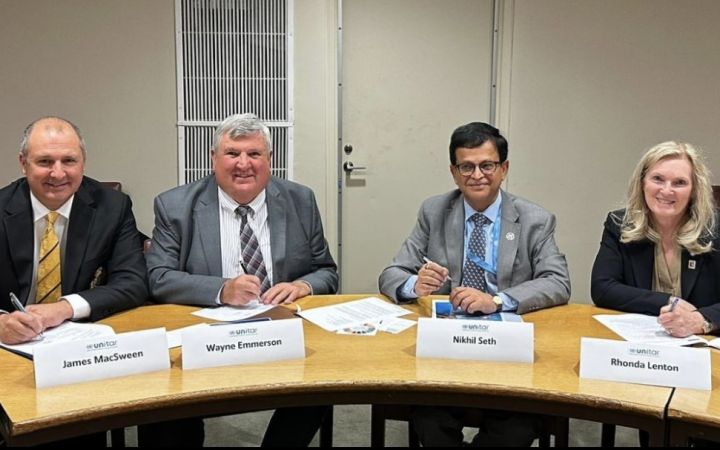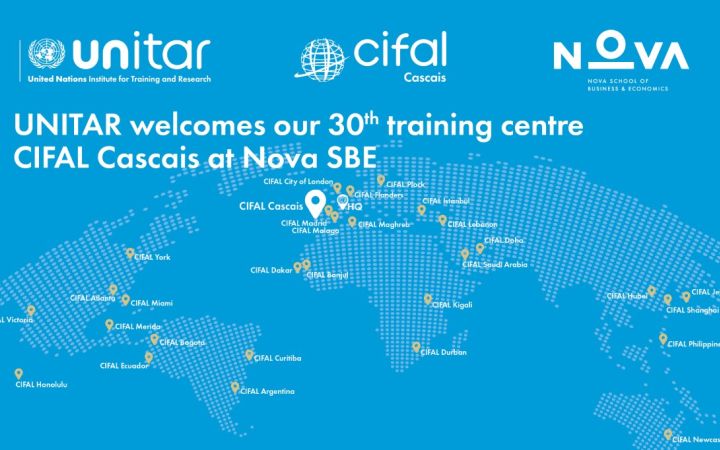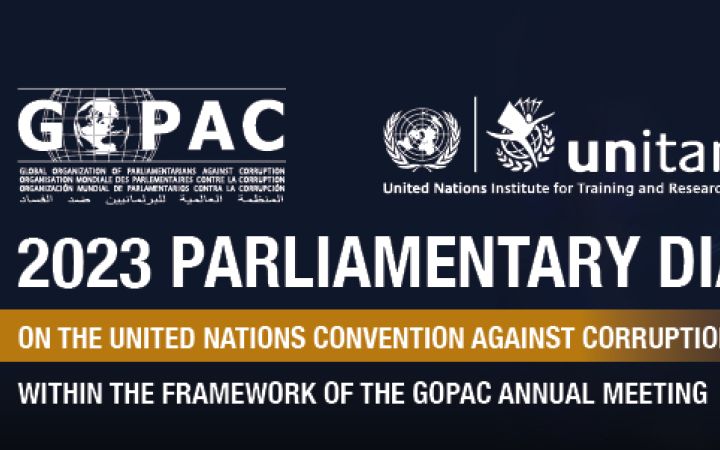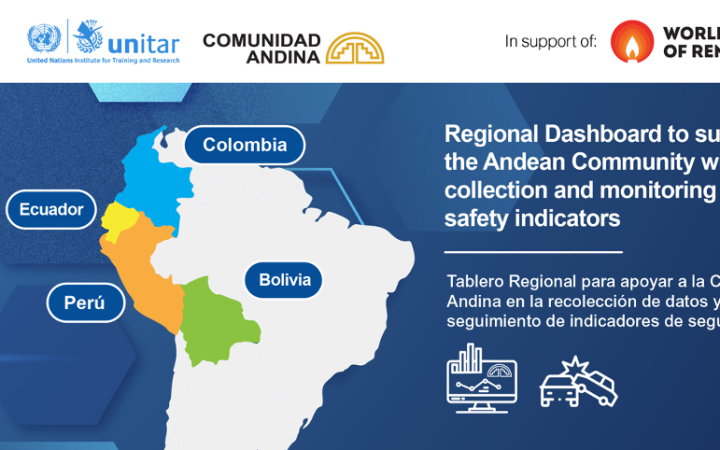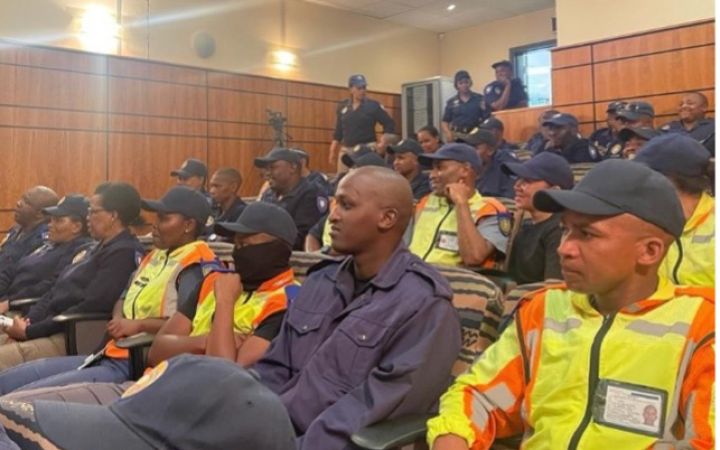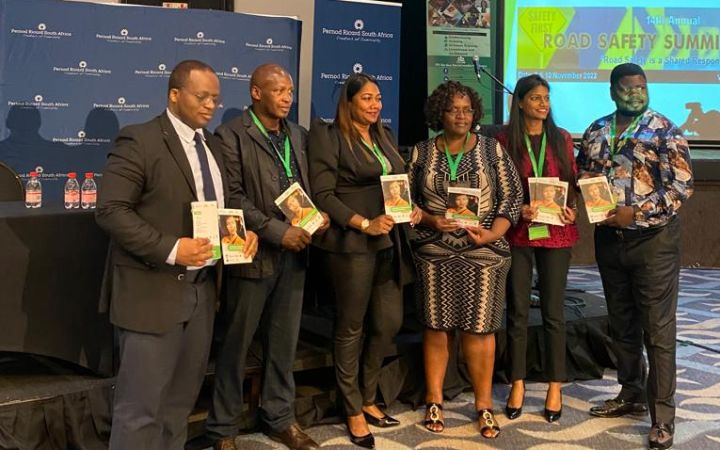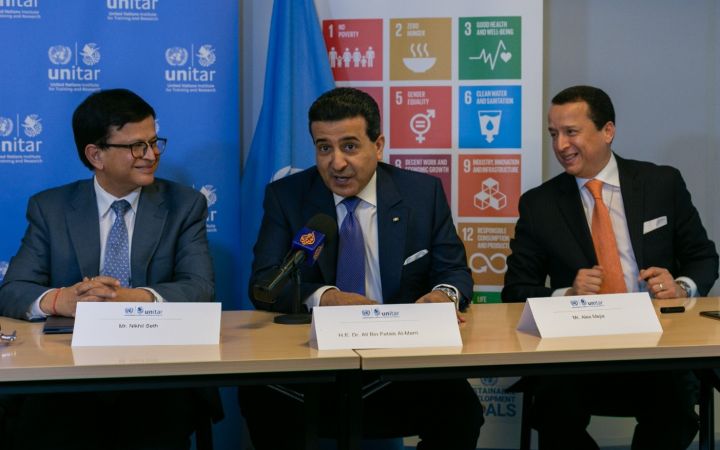Displaying 191 - 200 of 344
22 March 2023, New York, USA - UNITAR, York University, the Regional Municipality of York (York Region) and York Regional Police renewed its partnership agreement to foster sustainable development in Canada. This agreement aims to deliver joint training and professional development activities, which target – mainly – government officials, leaders, civil society and other interested parties in the areas of safety mobility including road safety, mental health, gender equality, entrepreneurship and economic growth, and climate change, amongst others.
21 March 2023, Geneva, Switzerland - UNITAR’s network of affiliated training centres CIFAL Global Network (CGN) serve as hubs for the exchange of knowledge on development-related topics including water-related issues. The impact and scope of the CGN capture a wide range of stakeholders, with special emphasis on local authorities and civil society leaders, offering cutting-edge learning and training to close to 90,000 beneficiaries per year.
2 March 2023, Cascais, Portugal - UNITAR and Nova School of Business & Economics (Nova SBE) join forces to establish the first International Training Centre for Authorities and Leaders (CIFAL) in Cascais, Portugal. The partnership with Nova SBE recognizes its work on applied research and commitment to developing new approaches that will help meet society’s most urgent challenges by providing innovative training and facilitating the exchange of knowledge amongst government officials, the private sector, and civil society.
GOPAC and UNITAR are organizing a Parliamentary Dialogue on UNCAC. The Dialogue aims to explore perspectives, practices, lesson-learned from parliament in several areas, including how parliamentarians can improve their oversight role and establish specific parliamentary measures to implement the convention's provisions effectively.
31 January 2023, Geneva, Switzerland- The Annual Geneva Interfaith Dialogue convenes a diverse panel of Ambassadors and other high-level representatives of the world’s major faiths, as well as the International Geneva community at large, to engage on the links between faith, politics, and society. The Dialogue is held on the premises of the United Nations Office in Geneva (UNOG) each year during World Interfaith Harmony Week. It serves as a platform not simply to commemorate UNGA Resolution 65/5, but as a vehicle to raise public awareness, renew the Resolution’s commitments, and build capacity for putting the Resolution’s values into practice across the world.
6 December 2022, Santo Domingo, Dominican Republic – The National Institute of Transit and Land Transportation of the Dominican Republic (INTRANT), hosted the Road Safety National Week taking place from 19 to 26 November 2022. To amplify the outreach of the Autosobriety Training Programme to prevent drink-driving in the country, training and public awareness activities were rolled out throughout the week with a total of 340 beneficiaries.
18 November 2022, Lima, Peru – UNITAR and the General Secretariat of the Andean Community (SGCAN) signed an Interinstitutional Agreement to collaborate in the development, implementation and maintenance of a regional dashboard that will include relevant road safety statistics for CAN Member States.
17 November 2022, Durban, South Africa – As part of UNITAR’s ongoing capacity building efforts on Road Safety and ahead of the World Day of Remembrance for Road Traffic Victims, a series of capacity building workshops in different Provinces of South Africa on Strengthening National Road Safety Strategies: UNITAR’s Management Practices for Safer Roads Toolkit were held throughout the week.
9 November 2022, Durban, South Africa – In the framework of 14th Annual Road Safety Summit in Durban, South Africa taking place on 9 – 10 November, UNITAR and CIFAL Durban presented its Autosobriety Training Programme to government officials, businesses, and road safety stakeholders from South Africa.
4 November 2022, Geneva, Switzerland - UNITAR’s Division for People and Social Inclusion hosted the long-awaited dual signing ceremony for the launches of the Master’s Degree in International Affairs and Public Policy with Lusail University, and the Global Training Initiative for Parliamentarians Against Corruption with the Global Organization of Parliamentarians Against Corruption (GOPAC) in the presence of international reporters and news agencies.


